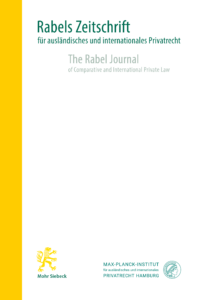Views
The Convergence of Judicial Rules between Mainland China and Hong Kong has Reached a Higher Level
By Du Tao* and Jingwei Qiu**
With the increasingly close personnel exchanges and deepening economic cooperation between Mainland China and Hong Kong, the number and types of legal disputes between the two regions have also increased. Against the backdrop of adhering to the “One Country, Two Systems” principle and the Basic Law of Hong Kong, the judicial and legal professions of the two regions have worked closely together and finally signed “the Arrangement on Reciprocal Recognition and Enforcement of Judgments in Civil and Commercial Matters by the Courts of the Mainland and of the Hong Kong Special Administrative Region (hereinafter referred to as “REJ Arrangement”) in January 2019, which will come into effect in January 2024. REJ Arrangement aims to establish an institutional arrangement for the courts of the Mainland and the Hong Kong Special Administrative Region to recognize and enforce judgments in civil and commercial cases, achieve the “circulation” of judgments in civil and commercial cases, reduce the burden of repeated litigation, and save judicial resources in the two regions.
Colonialism and German PIL (1) – Colonial Structures in Traditional PIL
This post is the first of a series regarding Colonialism and the general structure of (German) Private International Law, based on a presentation I gave in spring 2023. See the introduction here.
As mentioned in the introduction, this series does not intent to automatically pass judgment on a norm or method influenced by colonialism as inherently negative (I emphasise this because my experience shows that the impression quickly arises). Instead, the aim is to reveal these influences and to initiate a first engagement with and awareness of this topic and to stimulate a discussion and reflection.
The first category, to be discussed today, relates to the (sometimes unconscious) implementation and later continuation of the colonial structure in PIL – now and then.
Colonialism and German Private International Law – Introduction to a Post Series
In March 2023 I gave a talk at the conference of the German Society of International Law. The conference had the title “Colonial Continuities in International Law“ and my presentation focused on “Continuation of colonialism in contemporary international law? – Foundations, structures, methods from the perspective of PIL“. Thus, I was exploring those foundations, basic structures, and fundamental methods of mainly German Private International Law (PIL) and whether and how they have been influenced by colonialism.
News
Virtual Workshop (in English) on June 3, 2025: Michael Karayanni on “Voice and Exit in Private International Law: The Case of the Israeli Inter-religious Regime”

On Tuesday, June 3, 2025, the Hamburg Max Planck Institute will host its monthly virtual workshop Current Research in Private International Law at 11:00 a.m. – 12:30 p.m. (CEST). Professor Michael Karayanni (Hebrew University of Jerusalem) will speak, in English, about the topic
“Voice and Exit in Private International Law: The Case of the Israeli Inter-religious Regime”
Private international law can play a significant role in countries with inter-religious legal regimes by offering individuals an option to “exit” their personal religious law in favor of secular law in effect in a foreign country. My presentation will examine the development of the lex loci celebrationis choice of law rule within Israel’s inter-religious regime. Additionally, it will investigate whether this development has empowered individuals with an adequate “voice” to challenge community-based religious norms.
The presentation will be followed by open discussion. All are welcome. More information and sign-up here.
If you want to be invited to these events in the future, please write to veranstaltungen@mpipriv.de.
RabelsZ: New issue alert
 Issue 2 of RabelsZ 89 (2025) is out. All content is Open Access: CC BY 4.0 and more articles are available Online First. The full table of contents is available here.
Issue 2 of RabelsZ 89 (2025) is out. All content is Open Access: CC BY 4.0 and more articles are available Online First. The full table of contents is available here.
3rd Postgraduate Law Conference at the Centre for Private International Law and Transnational Governance
The 3rd Postgraduate Law Conference of the Centre for Private International Law is now open for registration.
The theme is “New Dimensions in Private International Law” and the conference will take place online on 6 June 2025 in the morning. Topics include commercial, family and maritime law, as well as law in the digital age and sustainability and corporate responsibility.


